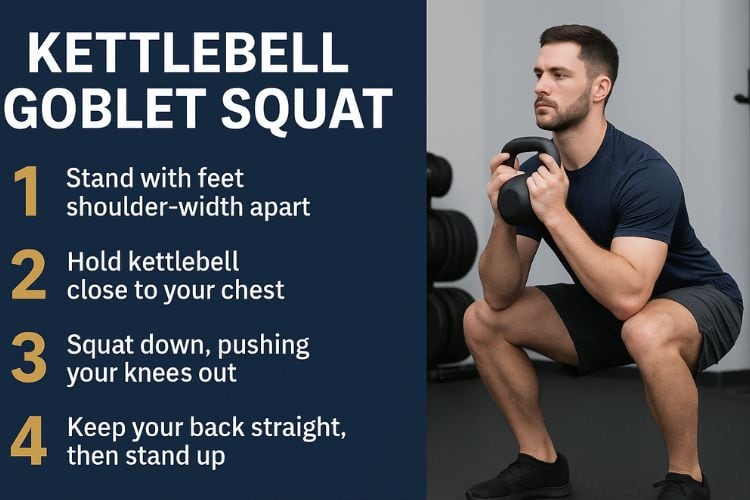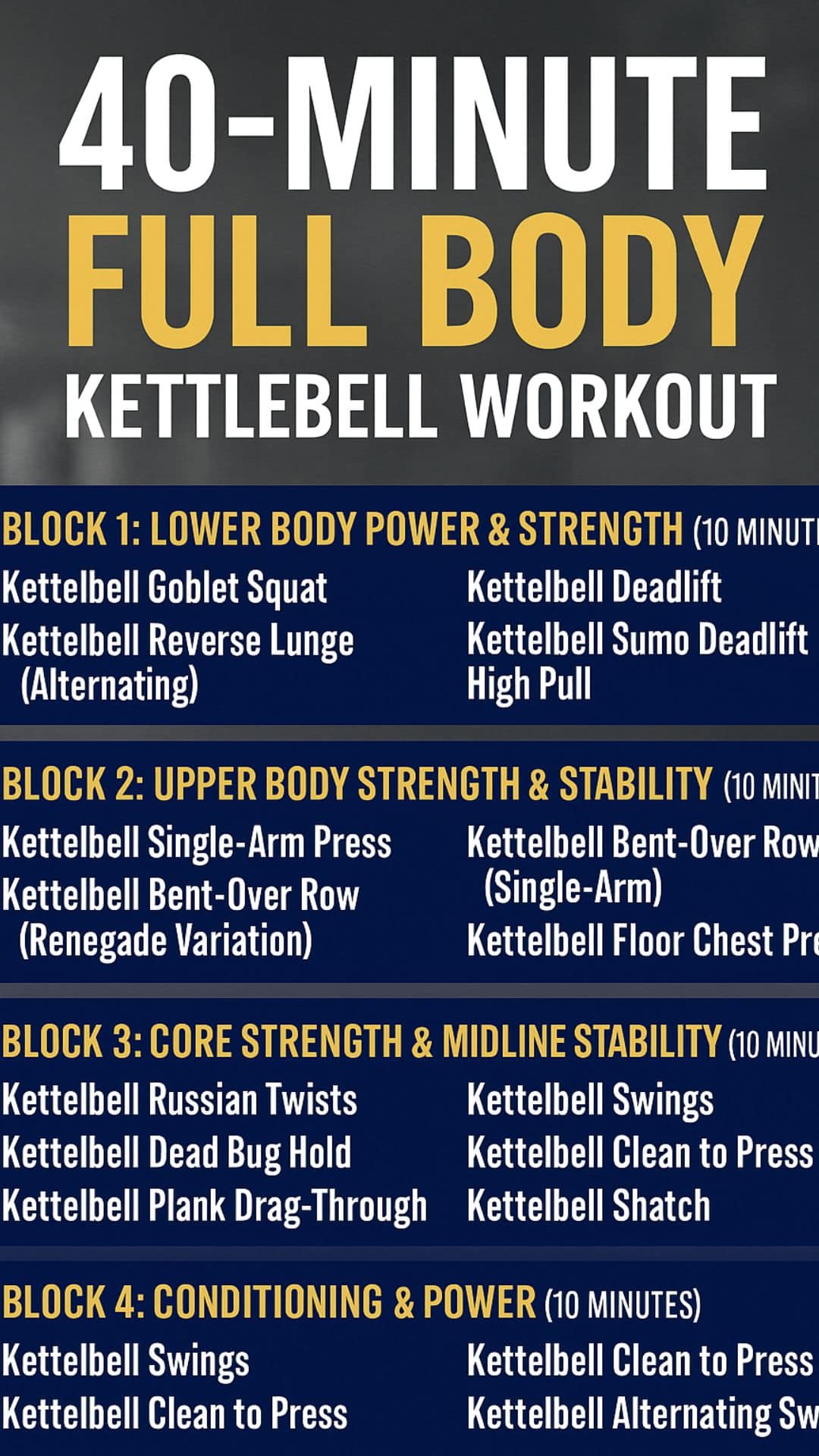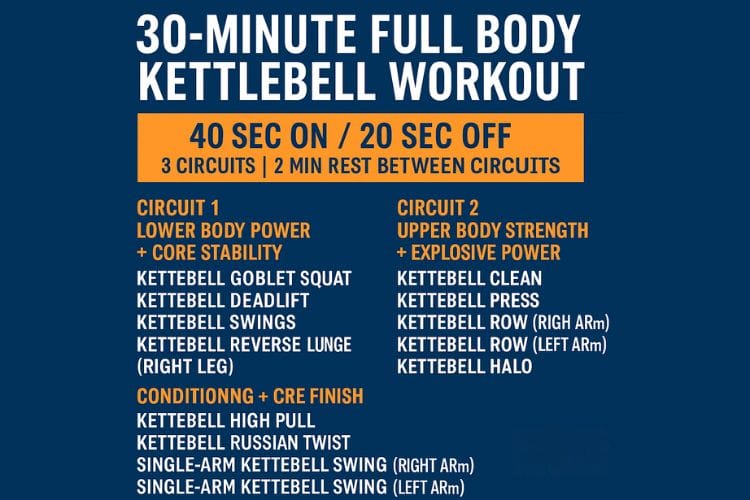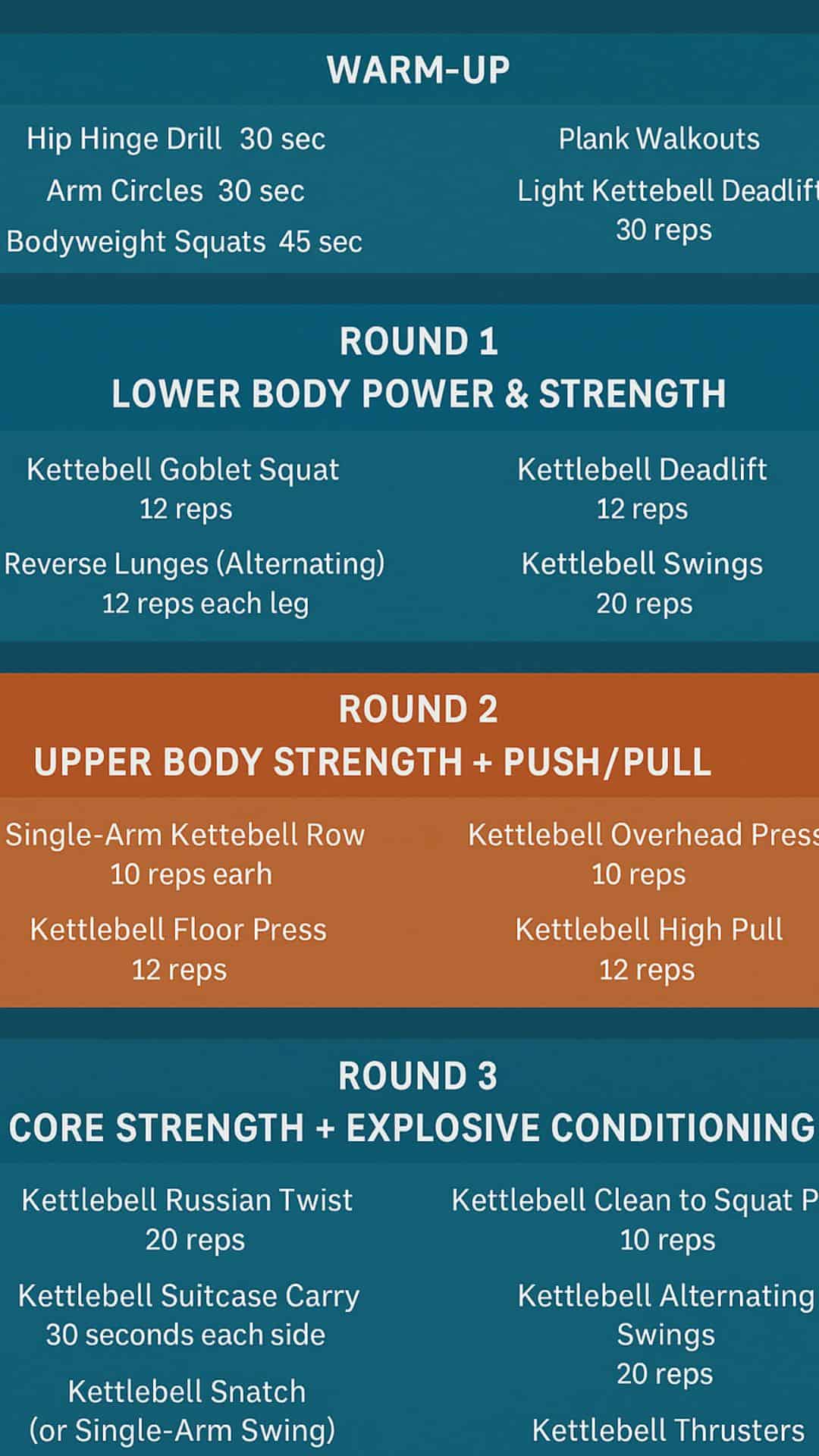
45 Minutes to Fit: A Full-Body Kettlebell Workout for All Levels

40-Minute Full-Body Kettlebell Workout (Build Muscle, Burn Fat)

30-Minute Kettlebell Workout for Total-Body Strength

25-Minute Full Body Kettlebell Workout for Strength & Fat Loss
How Much Working Out Is Too Much

Maintaining an active lifestyle is an essential component of our overall well-being. Yet, like many good things in life, moderation is the key. While regular exercise offers numerous health benefits, excessive workouts can potentially harm us both physically and mentally. Thus, discerning the threshold between adequate and excessive exercise is crucial. So, how much working out is too much? Let’s explore.
The Balancing Act: Determining How Much Working Out Is Too Much
Understanding the Benefits and Risks of Exercise
Regular exercise indisputably promotes our health. It strengthens the cardiovascular system, reduces the risk of chronic diseases, enhances mood, and supports weight management, among other benefits. The World Health Organization (WHO) recommends at least 150-300 minutes of moderate-intensity, or 75-150 minutes of vigorous-intensity physical activity per week, along with muscle-strengthening activities on two or more days a week.
However, a persistent misconception is the “more is better” approach when working out. There comes a point when exercising too much or too intensely starts to counteract the intended benefits, leading to a condition known as overtraining syndrome. Symptoms may include chronic fatigue, decreased performance, insomnia, elevated resting heart rate, frequent illnesses, and more. Therefore, recognizing the fine line between adequate exercise and overtraining is essential.
The Danger Zone: Overtraining Syndrome
Overtraining syndrome typically occurs when the body doesn’t get enough time to recover between workouts. Continuous, intense workouts without adequate rest strain the body, leading to hormonal imbalance, immune dysfunction, and other physiological and psychological problems. This is not to discourage anyone from vigorous physical activity. It merely emphasizes the importance of structured rest and recovery periods, which are equally essential as the exercise itself.
Listen to Your Body: working out is too much
One way to determine if you’re over working and pushing too hard is by listening to your body. If you’re experiencing persistent fatigue, irritability, poor sleep, loss of appetite, or reduced performance, it may be time to dial it back. Remember, occasional muscle soreness after a new or intense workout is normal, but consistent pain or discomfort might signify overdoing it.
Personalization is Key: working out is too much
Determining how much workout is too much depends on many factors such as age, fitness level, diet, stress levels, and quality of sleep. What might be excessive for one person may be moderate for another. For example, an elite athlete will handle more volume and intensity than a casual gym-goer. Hence, personalizing your workout routine based on your unique circumstances is vital.
To find the sweet spot between undertraining and overtraining, seek professional advice if possible. Fitness trainers, physical therapists, and sports medicine doctors can guide you in creating a tailored workout regimen that considers your health history, goals, and lifestyle.
Balancing Exercise with Recovery: working out is too much
Balancing exercise and recovery is a practical approach to avoid over working. Every workout session should be followed by appropriate rest and recovery measures. This can range from getting a good night’s sleep, following a nutritious diet, staying hydrated, to engaging in restorative practices like yoga, meditation, or foam rolling.
Similarly, varying your workouts – incorporating a mix of cardio, strength training, and flexibility exercises – can prevent overuse injuries and promote balanced muscle development. It’s also essential to schedule rest days into your fitness program to let your body fully recuperate.
Psychological Aspects of Overtraining
Often overlooked, the psychological impacts of excessive workouts are just as critical. Overtraining can lead to burnout, mood swings, and symptoms resembling depression. Exercise should enhance your life, not add to your stress. A healthy relationship with physical activity involves enjoying the process, celebrating progress over perfection, and allowing flexibility in your routine.
Conclusion
While an active lifestyle is a cornerstone of good health, excessive working out can have negative impacts on both physical and mental health. The aim should not be to push your body to its limits at all times but to maintain a sustainable and enjoyable routine that contributes positively to your holistic well-being.
Finding the balance might require some trial and error, as well as the wisdom to listen to your body’s cues. Experiencing fatigue, persistent soreness, mood swings, sleep disturbances, and diminished performance can all be signals that you might be overdoing it. Responding to these signals and making the necessary adjustments to your workout regimen can protect your health in the long term.
Well-Rounded Fitness Program
Also, remember to consult with fitness professionals. Their expertise can provide invaluable guidance in creating a personalized, well-rounded fitness program that respects your body’s limits while still challenging you.
In addition, it’s crucial to integrate working recovery strategies into your fitness routine. Good nutrition, ample hydration, quality sleep, and mindful practices such as yoga or meditation can promote recovery and counteract the stress induced by exercise.
Joy And Fulfillment
Above all, exercise should be a source of joy and fulfillment, not a trigger for stress or anxiety. If you find yourself dreading workouts, it’s worth reevaluating your approach. Prioritize activities you genuinely enjoy, and remember that it’s okay to have days when you’re less active. A rest day is not a setback—it’s an essential part of the journey towards better health.
Ultimately, maintaining an active lifestyle is not about clocking countless hours at the gym or achieving the most intense workouts possible. It’s about nurturing your body, mind, and spirit in a balanced and sustainable way. Recognizing how much working out is too much can help you stay healthy, motivated, and ready to embrace the myriad benefits that regular, well-balanced exercise can provide.
Most Recommended
Subscribe to our Newsletter
Stay up to date on the latest men’s health, fitness and lifestyle trends and tips.
About Us
Men’s Fit Club was started with the goal of empowering men to get the most out of their lives. This meant going beyond exercise and diet tips to really address the broad range of issues that men face on a daily basis – topics like recreation, finding love, sexual health and even sound fashion advice.
Quick Links
© COPYRIGHT MEN'S FIT CLUB 2025. All Rights Reserved

